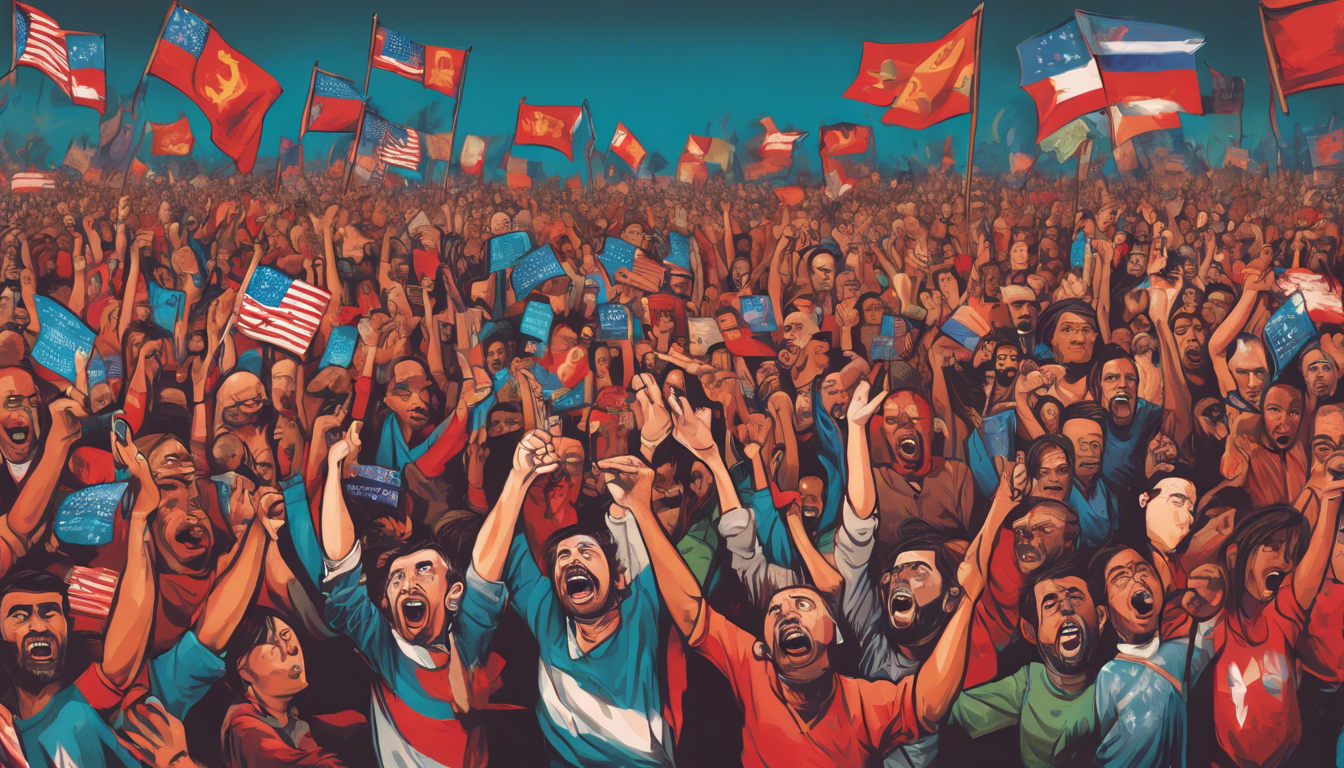In recent years, the landscape of global politics has undergone a seismic shift, as the forces of disillusionment and frustration have converged to fuel a surge in populism.
The aftermath of the post-Cold War era has left many citizens feeling abandoned and betrayed, as the realities of globalization often contradict the promises of prosperity and stability once made by their leaders.
This article delves into the intricate web of historical roots that underpin this widespread discontent, tracing the rise of populist movements and their implications for political change around the world.
By examining the factors that have led to this revolt against the established order, including the emergence of influential figures like Donald Trump, we aim to illuminate the sentiments driving modern political landscapes and the pursuit of new norms and institutions.
Key Takeaways
- Disillusionment in the post-Cold War era has fueled a sense of betrayal among citizens.
- The rise of populism is a direct response to the perceived detachment of political elites from ordinary people’s struggles.
- Significant political shifts, including the ascendance of figures like Donald Trump, reflect a global trend of revolt against established norms.
Historical Roots of Disillusionment
Disillusionment has taken root across the globe, particularly in the wake of the post-Cold War era, significantly impacting social and political landscapes.
As citizens grapple with the ramifications of globalization, many feel a growing sense of betrayal stemming from broken promises of prosperity and stability.
This discontent has manifested in a backlash against established political norms, with figures like Donald Trump exemplifying this revolt.
Tracing these historical roots, the current frustration is often aimed at political elites who appear disconnected from the everyday struggles of average citizens.
As populist movements gain momentum, there is a noticeable shift in the way politics is approached worldwide, highlighting a collective desire for change that challenges existing institutions and promises to address the concerns of a disillusioned populace.
The Rise of Populism and Its Global Implications
The resurgence of populism represents a significant political realignment that can be directly linked to a confluence of economic and social factors.
In many nations, voters are increasingly drawn to charismatic leaders who promise to prioritize the interests of the common people over those of the elite.
This shift reflects a deep-seated frustration with traditional political parties, which many citizens perceive as having failed to address issues such as wage stagnation, rising inequality, and the erosion of job security.
Moreover, the global interconnectedness that accompanied the rise of globalization has often left communities feeling marginalized, resulting in a growing demand for local-centric policies and governance.
Populist leaders position themselves as outsiders challenging the status quo, galvanizing support by advocating for national sovereignty and often employing rhetoric that emphasizes a return to simpler times.
This trend has not only altered the political conversation but also posed challenges to democratic institutions as populist rhetoric frequently targets the media, judiciary, and other checks on power, raising questions about the longevity and stability of these movements in sustaining the very democracy they claim to protect.











